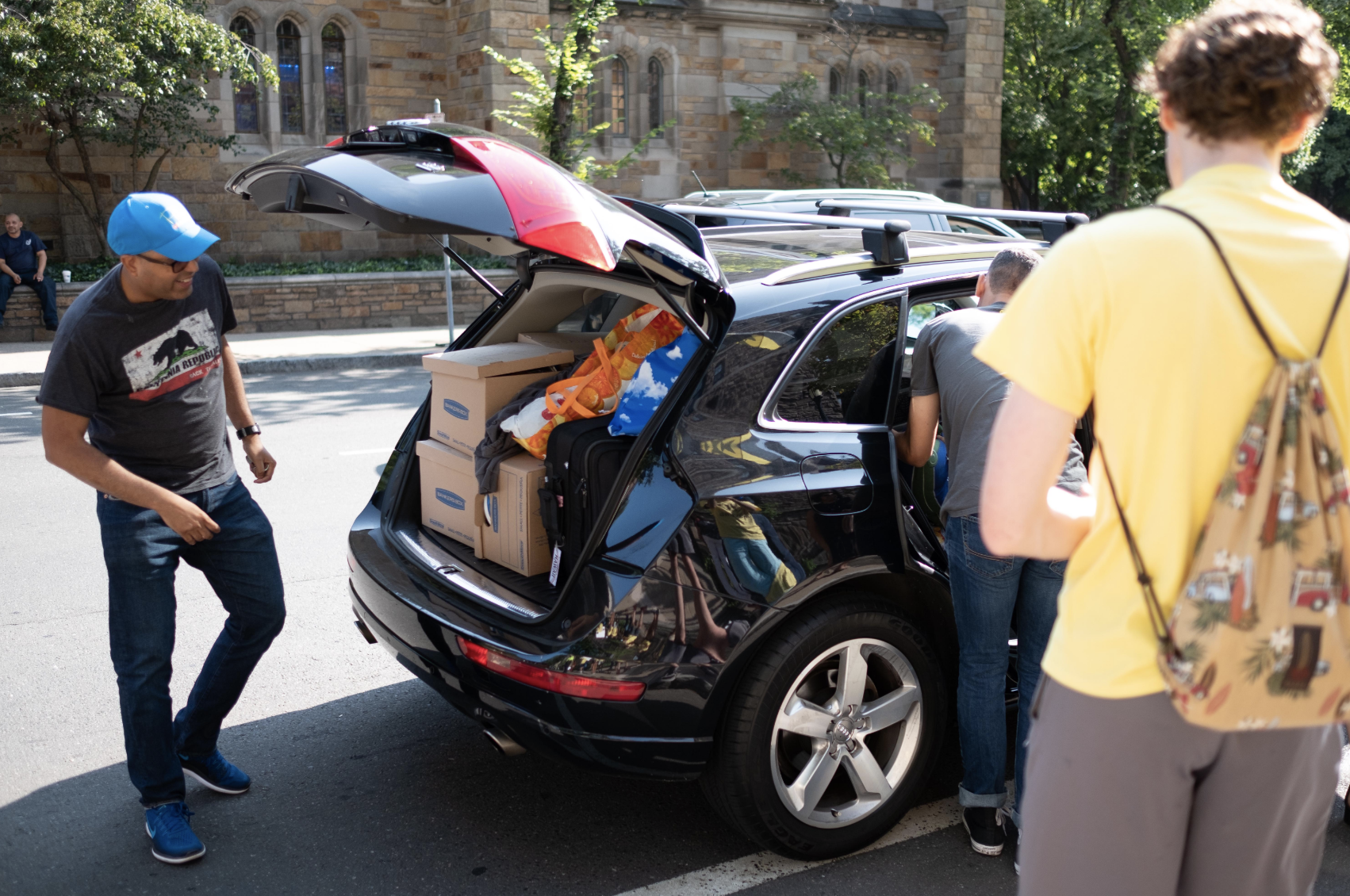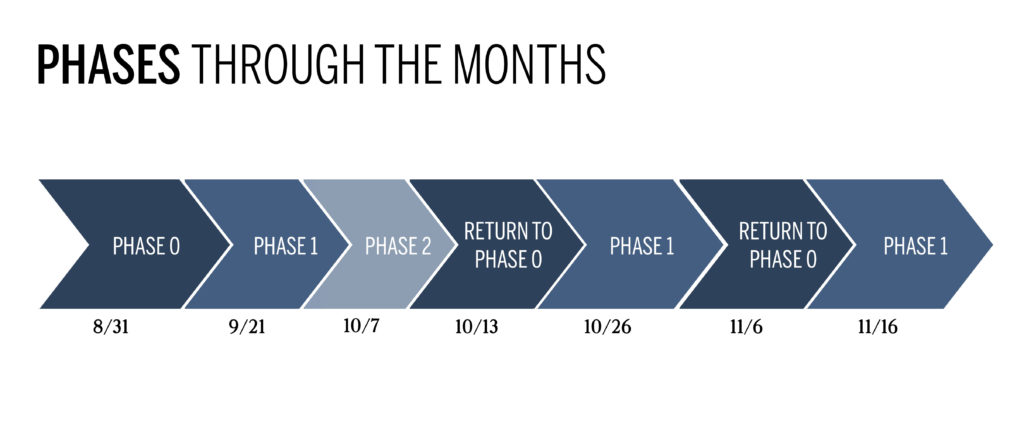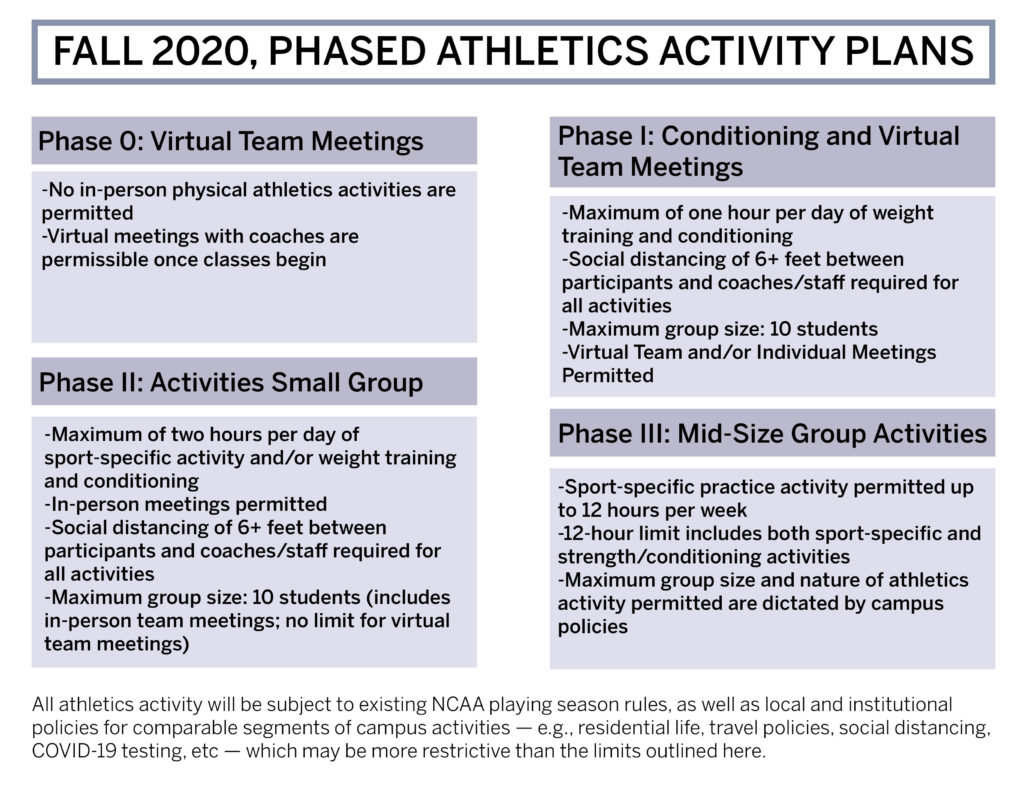What’s the move? First-year athletes face difficult enrollment decision
With the fall semester ending and the status of spring-sport competition still uncertain, 23 first-year student-athletes spoke with the News about how they are weighing whether to remain enrolled, study remotely or live in New Haven.

Eric Wang, Senior Photographer
First-year student-athletes across campus have begun to pack up their lacrosse sticks, rackets and sneakers as their time on campus this fall comes to a close this weekend, causing many of them to look ahead to the spring semester and weigh their options.
Twenty-three first-year athletes spoke with the News about their enrollment plans this spring and whether they plan to stay in New Haven or not. For many, the question is shrouded in uncertainty due to the unknown nature of next semester’s practices and spring competition. Last Thursday, the Ivy League canceled all winter sports competition and postponed spring competition until at least the end of February. Of the 23 athletes interviewed, seven hope to stay enrolled on campus with approved exceptions and 14 plan to enroll remotely, one of whom plans to live off campus in the New Haven area. The other two athletes remain undecided.
While many first-year athletes, like men’s tennis player Shervin Dehmoubed ’24, remain hopeful about the possibility of spring-sport competition, they also remain hesitant to make definitive decisions about their enrollment status until more information about spring athletics is released.
“I’d love to be back on campus, and … if I do [get an exception for on-campus housing in the spring], I’ll probably come back and train with the sophomores, juniors and seniors,” Dehmoubed said. “If I don’t, and the season doesn’t run, which seems like the most probable outcome right now, I’m going to take a gap semester and a leave of absence, so I can … make the most of my time at Yale.”
Dehmoubed, who has been playing tennis for over 15 years and is used to playing daily at home in California, expressed that coming to campus for the first semester was a good decision for him because he was able to meet his team and weight-training coaches, while also gaining an understanding of his coaches’ expectations.
Alongside Dehmoubed, many Yale first-year student-athletes decided to come to campus in the fall, yet are facing the difficult decision of remaining enrolled for the spring semester or taking a leave. Cara Shultz ’24, a women’s volleyball player at Yale who has competed for the past 12 years, expressed a similar lack of certainty regarding whether or not she will be enrolled.
“There’s a lot of moving parts in terms of my plans for the spring,” Shultz said. “The way things are going right now … anything can change at any moment, so I’m honestly kind of taking the spring, whether to enroll or not … kind of [one] day at a time.”
Men’s soccer first years Kahveh Zahiroleslam ’24 and Quanah Brayboy ’24 both plan to study remotely from home, while their teammate, forward and midfielder Sandor Pelle ’24, intends to play overseas but is not yet sure of his enrollment status. Men’s soccer forward and midfielder Olivier Van Spaendonck ’24 expressed a desire to be able to practice in the spring.
In last week’s announcement of no winter competition and the delay of spring competition, Yale Athletics included an FAQ statement that clarified how first-year student-athletes might be able to access campus in the spring, noting that the department “will provide access to necessary athletic facilities for enrolled spring sport first-year student-athletes if athletic competition is permitted in the spring semester.” If competition is permitted in the spring, the statement added, these student-athletes will still need to follow the community compact.
Although some student-athletes said that they believe their training and practice will be more efficient from home with fewer restrictions or that they have decided to take gap semesters to extend their eligibility, Director of Yale Athletics Vicky Chun expressed her hope for a smooth spring season with a progression of phases in a Tuesday Zoom interview with the News.
“I pray every night because … I just would hate for this [situation] to come around for spring sports again,” Chun said. “At the same time, I think we all thought COVID would be, [that] we would be at a better place … not worse.”
Other first-year athletes definitely plan on taking leaves of absence this spring. On the women’s soccer team, both forward Meredith Phillips ’24 and midfielder Kayla Parsons ’24 said they will not enroll.
Because of the lack of certainty around spring competition and phased practices — this fall, Yale athletes only engaged in “sport-specific activities” for the six days teams spent in Phase II — for the rest of this academic year, many other student-athletes are considering enrolling remotely from home. Shultz discussed how living in Pennsylvania will likely allow her to have more access to training.

“Our gyms are a little more open and club level training is still happening, so there’s a possibility I may be able to train and play some volleyball with my old club teams,” Shultz said. “Also, I’m lucky enough to have three sisters who all play volleyball, and so we would definitely be able to, within our own little family bubble, be able to do something together [and] play together.”
Yale football defensive back Zack Haaland ’24 and defensive lineman Nathan Puletasi ’24 are both staying home this spring, with Haaland deciding to not enroll. Ryan Conroy ’24 of the men’s hockey team, Renaud Lefevre ’24 of men’s tennis and Kiernan Liberman ’24, a diver on the Yale men’s swimming and diving team who intends to travel next semester, are all enrolling remotely as well.
While the majority of the student-athletes that talked to the News intend to study enrolled remotely from home, eight others, like men’s lacrosse defender Franz Raab ’24, hope to live on campus with an exception or to enroll remotely but live in New Haven next semester in hopes that spring competition can occur.
“With all of the uncertainty around whether or not we will have a season this year, it has been difficult to decide what to do,” Raab said. “Right now, I am leaning towards staying enrolled, however.”
Raab’s men’s lacrosse teammate David Anderson ’24 and James Casemore ’24 of the men’s lightweight crew team have been granted an exception to live in on-campus housing for the spring semester and plan on attending practices in the spring if in-person athletic activity proceeds under Yale’s phasing guidelines. Enrico Pradines ’24, a teammate of Casemore, hopes to enroll remotely and live off campus in New Haven.
When asked about their hopes for spring practice and competition, both tennis player Dehmoubed and volleyballer Shultz emphasized their desire to play their sport and have practice progress past Phase I, which limits in-person athletic activity to one-hour training and conditioning sessions in groups of 10 or fewer. Dehmoubed suggested that he hopes the athletics administration “makes a decision per program rather than as a department as a whole” because he believes tennis could be played safely and distanced under the current Phase I rules.
“If there were spring practices, I would want to be in Phase II as much as possible,” Shultz said. “It’s just more fun when you’re able to get as close to normal as you can with the equipment, and with the amount of people you’re allowed to.”

Whether it be on the lacrosse or soccer field at Reese Stadium, the track in Coxe Cage or the ice at Ingalls Rink, the first-year class of student-athletes looks forward to the return of regular practice and play in coming seasons, an excitement shared by Chun.
“If it’s allowable, we’ll have to go through the phases to get there,” Chun said. “I’ve got my toes, my fingers, everything is crossed.”
Yale teams moved back to Phase I on Monday.
Amelia Lower | amelia.lower@yale.edu
Eugenio Garza García contributed reporting.







